Imposter syndrome can creep into every corner of our lives, showing up at work, in our relationships, and even in parenting and hobbies.
Considering climbing is a demanding and challenging sport, this article intends to bring awareness to how imposter syndrome manifests in our community, where it comes from, and how we can confidently climb above it and gain self-love.
What is Imposter Syndrome?
Imposter syndrome is a psychological phenomenon that arises from a combination of internal and external factors. It is often rooted in personal experiences, especially in childhood, social and cultural pressure, as well as psychological tendencies. As a result, high-achieving individuals doubt their skills and struggle with acknowledging their own accomplishments.
In their Ph.D, Suzanne Imes and Pauline Rose Clance describe this global phenomenon as something observed first “among successful women and other marginalized groups”.
Therefore, ironically enough, imposter syndrome is to be found among some of the most successful people we know.
Read more on this in the study published and revised in 2023 by the National Library of Medicine.
How to identify imposter syndrome in climbing
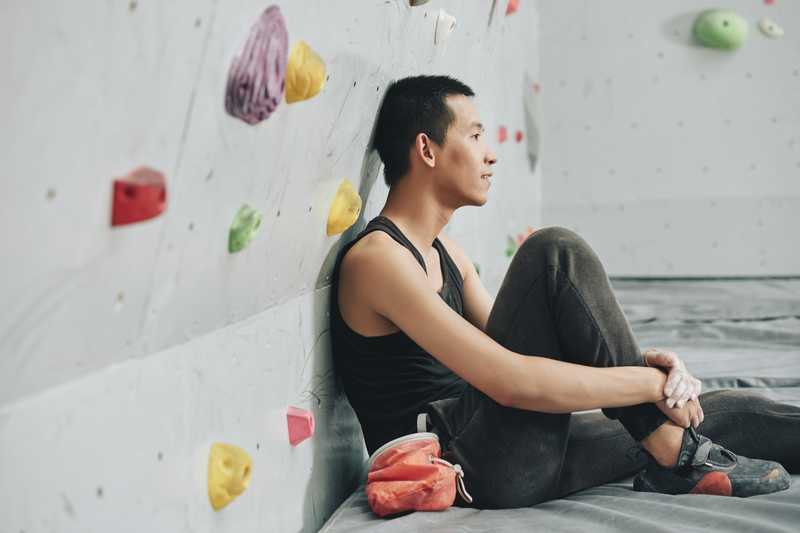
Imposter syndrome is like being cursed with having it all and not being able to enjoy it. Unfortunately, being affected by it without knowing about it can lead to anxiety, depression, burnout, mood and personality disorders, and low self-esteem.
Especially for the high achievers, the traumatic response to past experiences is so strong that it even creeps into activities they enjoy doing the most. Such as bouldering.
Signs you might experience imposter syndrome
1. You always see others as better than you
You praise other climbers and their sports-related achievements but when it comes to yours you see yourself as a loser in comparison.
2. You deny your climbing skills
Despite existing evidence, climbers who have imposter syndrome tend to say they’re not as strong as people think or say they are. Instead, they diminish their success by relating it to random external factors such as good climbing conditions.
3. You are your best critic and you minimise your success
You put time and effort into a climbing project but then you diminish its value when you send it by saying it was not as hard. Or that you got lucky. That leads to low self-esteem and messes up with the image you have about yourself as a climber.
4. Climbing emotional rollercoaster
Climbers who fall in the over-preparation category tend to over-train because they feel like they need to work harder than others to compensate for their perceived lack of skills.
The ones who fall into the procrastination category, are usually not consistent with their training. Their tendency is a last-minute approach to prepare for a bouldering project and that can lead to mixed feelings. Even if they achieve success, they tend to downplay their accomplishments, thinking, “I didn’t work hard enough.”
This kind of mindset fosters a fear of being seen as a fraud.
5. You get sort of depressed when you don’t accomplish your bouldering problems or training for climbing. But when you do, you don’t see it as a success either
A climber who is an overachiever will have a hard time truly appreciating their send for what it is and see it as something successful.
The ongoing anxiety, self-doubt, and fear of being exposed or not being enough forces them to look for external validation and feedback. This leads to a vicious cycle of always moving on to the next project. This can lead to depression and burnout.
My personal experience with the imposter syndrome
1. Feeling like a fraud for having natural talent (languages, school, and Uni)
Imposter syndrome often stems from attributing success to factors like luck or ease instead of skill or effort. Even though your success came from your natural abilities, you might have felt undeserving compared to your colleagues who seemed to struggle more.
- In my case, I felt like a fraud in school for naturally being good at languages because it felt like I didn’t need to work as much as the others to get good grades
- I often felt like I was cheating my way through school because instead of spending days learning for exams I found that I could recall most of the material just by being present in class.
2. Feeling like I had to pretend and make myself look busy
Imposter syndrome can manifest as a fear of being “found out,” leading people to overcompensate or hide their efficiency. The thought process might be: “If it’s easy for me, it must mean I’m doing something wrong or not working hard enough.”
- At my previous jobs when I was able to finish my projects faster than everybody I felt like I had to pretend I was still busy so don’t expose myself
3. Minimising achievements and attributing them to luck
A common trait of imposter syndrome is downplaying accomplishments or dismissing them as coincidental rather than acknowledging skill, talent, or hard work.
- In climbing, when I have a good flow on a route or send a boulder I wasn’t expecting to I almost feel embarrassed for it and I sometimes try minimising its worth thinking it must be luck
4. Fear of failure in climbing and self-worth tied to performance
When self-worth becomes tied to performance, it amplifies feelings of inadequacy when we experience setbacks.
- I noticed that if I am having a bad climbing day I start feeling sad whereas if it’s a good climbing day I am over the roof!
- On the other hand, I feel ashamed being vocal about my real climbing projects because I am afraid other strong climbers will tell me it’s too hard for me.
And somehow my fear of failure works as a self-fulfilling prophecy.
5. Doubting your passion and comparing yourself to much stronger climbers (e.g., Adam Ondra):
Thoughts such as “What are you doing?” Why are you trying to make a life around climbing” and “Why do you spend all of this time training when you know you’re not going to climb like Adam Ondra?” often creep in and challenge my inner peace and the joy I find in climbing.
- Imposter syndrome thrives in comparison. But if you think about it, comparing ourselves to other people and especially to pro athletes instead of simply admiring them creates unrealistic standards. As a result, even when we’re achieving great things in climbing, our desire for “more” makes us feel like it’s not enough.
How to manage imposter syndrome and gain self-love
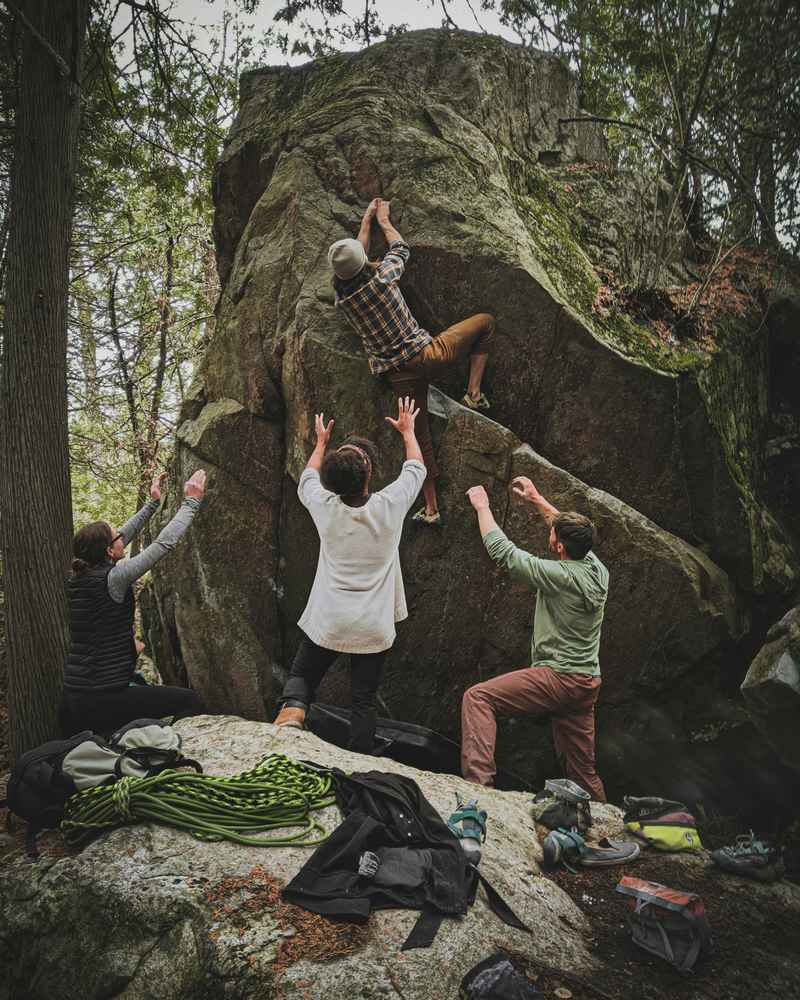
There is no secret solution to making it disappear. However, there are healthy ways of dealing with it and feeling better about yourself.
Imposter syndrome is a form of personal response or interpretation to life-traumatic situations, culture, and parenting styles. Most likely we developed imposter syndrome while growing up.
But that is not to say social media can’t have a huge impact on it as well. It can be a major trigger.
Feeling like your content is not good enough compared to others, posts engagements, how many likes or comments did your photo get – does it ring a bell?
1. Breaking the habit of negative self-talk through self-reflection and observation
Be mindful of when you talk badly about yourself while climbing. Choose to challenge those negative thoughts that take away from you the joy and ability to learn.
After all, it is that bad you didn’t manage to stick that boulder problem? Instead of telling yourself you are not good enough, ask yourself: “What more can I learn about my climbing?”
Try gratitude exercises and make a list of the things you are grateful for.
2. Reframe your self-perception regarding talent
So you found the beta easier than your climbing buddy. So what? It could be talent, could be luck. Does it matter?
Why should that be seen as less valid than spending days trying to nail a climbing move?
The art of martial arts teaches us to focus on the self, discover our unique strengths (talents included), and give them value. After all, even if you’re naturally good at crimps this doesn’t mean you won’t have to train to improve finger strength.
Watch the Principles of Martial Arts Applied to the Wall here:

3. Journaling
Documenting both your accomplishments and struggles can turn out helpful when you tend to either forget or dismiss them.
Moreover, keeping a journal will help you focus on intrinsic motivation and remember the work you did to get where you are and what challenges you overcame.
In addition, you’ll start fixating on your outcomes and now on how others perceive you. Bonus? More structure in your climbing. Something like this.
4. Seek connection
Talking to other people about these feelings you’re experiencing will help you normalise how you are feeling. It can reveal how common imposter syndrome is, as well as other struggles among people you admire and believe to be “perfect”.
This is not a podcast about imposter syndrome. However, it is an episode where Alex Stiger and Neely expose their mental and physical struggles related to climbing, social patterns, and what they learned about climbing in 2024. Super interesting!
5. Mindfulness. Or being in the present moment
In my early days as a climber, I used to say that I loved bouldering because it made me feel like there was nothing else in the world apart from me and the rock. Little did I know this is called the art of being present and climbing was just a tool that summoned it.
Climbing is an activity that forces you to stay in the present moment and be observant. Through practice you learn how to be comfortable with discomfort and with making decisions fast.
Strong Mind Climbing article talks about how mindfulness and compassion techniques can help us regain composure in climbing. I find it interesting how this can be applied to daily climbing and even in life.
The connection between society and imposter syndrome
Society operates on a set of rules and standards, which is perfectly reasonable considering there are 8.2 billion people on this planet. Therefore a guiding framework is something that also helps us to be organised and coexist, more or less, harmoniously.
The problem arises when this exterior system collides with inherited traits of children, abilities, and upbringing.
Society’s standards structure and pressure to perform
According to the educational standards, you need to aim for the top, if you want to be successful in life. At school, we are valued according to how well we perform according to society’s standards. (Even though as we go through life we understand how unrealistic it is to want to be exceptional at everything.)
Hierarchical reality of society
Why is climbing like a professional so important for a climber’s self-worth?
Societal value is often inclined toward certain professions, even though all roles are essential for society to function right. But should being successful be held to a social standard rather than personal skill and something an individual is naturally inclined toward?
When we don’t feel good enough because we don’t tick the standard boxes, what is “the enough” we are aiming for?
Let’s consider the following example: Why being a doctor is seen as THE better job in a hospital? Don’t nurses play a crucial role as well in the healthcare system? And are those without higher education degrees less worthy than those who did study more?
Of course not, it’s about choices and skills.
Or if we take artists and engineers, is one more important or valuable to society than the other?
I believe not. The world needs beauty as much as it needs science.
The paradox of society is that it does function as a hierarchical system. So personal abilities and natural skills play as big of a role as achievements do according to society’s standards.
Then why are we being educated as if it’s all or nothing?
Podcast material to help you climb above imposter syndrome
Imposter syndrome affects the best – The leadership podcast with Steve House
- Claire Kawainui Miller, a crew leader at Touchstone Climbing, USAC Level 2 Routesetter, and climbing movement enthusiast. A thought-provoking conversation, where Claire and Holly explore topics ranging from gender inequities, imposter syndrome, and ladder mishaps to Claire’s most controversial setting opinion.As a bonus, Claire shares an unforgettable setting exercise you won’t want to miss.
Overcoming fear, the unwinnable game of climbing, and the power of human stories
- Beth Rodden is considered one of the best female rock climbers of all time. Among other interesting and life-changing events such as her kidnapping in Kyrgyzstan, and her history with Magic Line, this Nugget Climbing episode approaches disconnecting self-worth from achievement, the unwinnable game of climbing.
How to find contentment in your climbing – The Nugget Climbing podcast with Neely Quinn
- Are you interested in finding out what hacks your performance in climbing and wish to learn how to deal with performance anxiety? Do you want to improve your climbing mindset?
Bonus: Insights on why Neely decided to become a coach herself, her collaboration with Hazel Findlay, and more.
Keep Them Sketched Out – Climbing business journal with Claire Kawainui Miller
- “In this discussion, Steve shares his journey from a nearly fatal fall, to life as an entrepreneur and coaching aspirational athletes. Steve talks about how mountain sports separate you from daily distractions to help guide us all on our journeys.”
Reframing success and self-worth
Gain your self-love back! Next time when you feel frustrated and doubt your ability to succeed, ask yourself questions such as:
- How do my climbing skills bring value to me?
- What are my climbing skills and what are my weaknesses?
- By what standards am I measuring my success? My own or someone else’s?
- Why is sending so important to me?
- What is it that makes me the happiest in my climbing?
Know your enemy and you’ll know what tools to use against them. Feeling like an imposter doesn’t mean you’re one; it often signals that you’re growing, pushing boundaries, and caring deeply about what you do. After all, progress in life is not linear and climbing is a good tool that teaches us just that.
How is your relationship with the imposter syndrome and how do you deal with it?
Products related to this article
Lattice Training
Belay Balls
Lattice Training
Rock Technologies

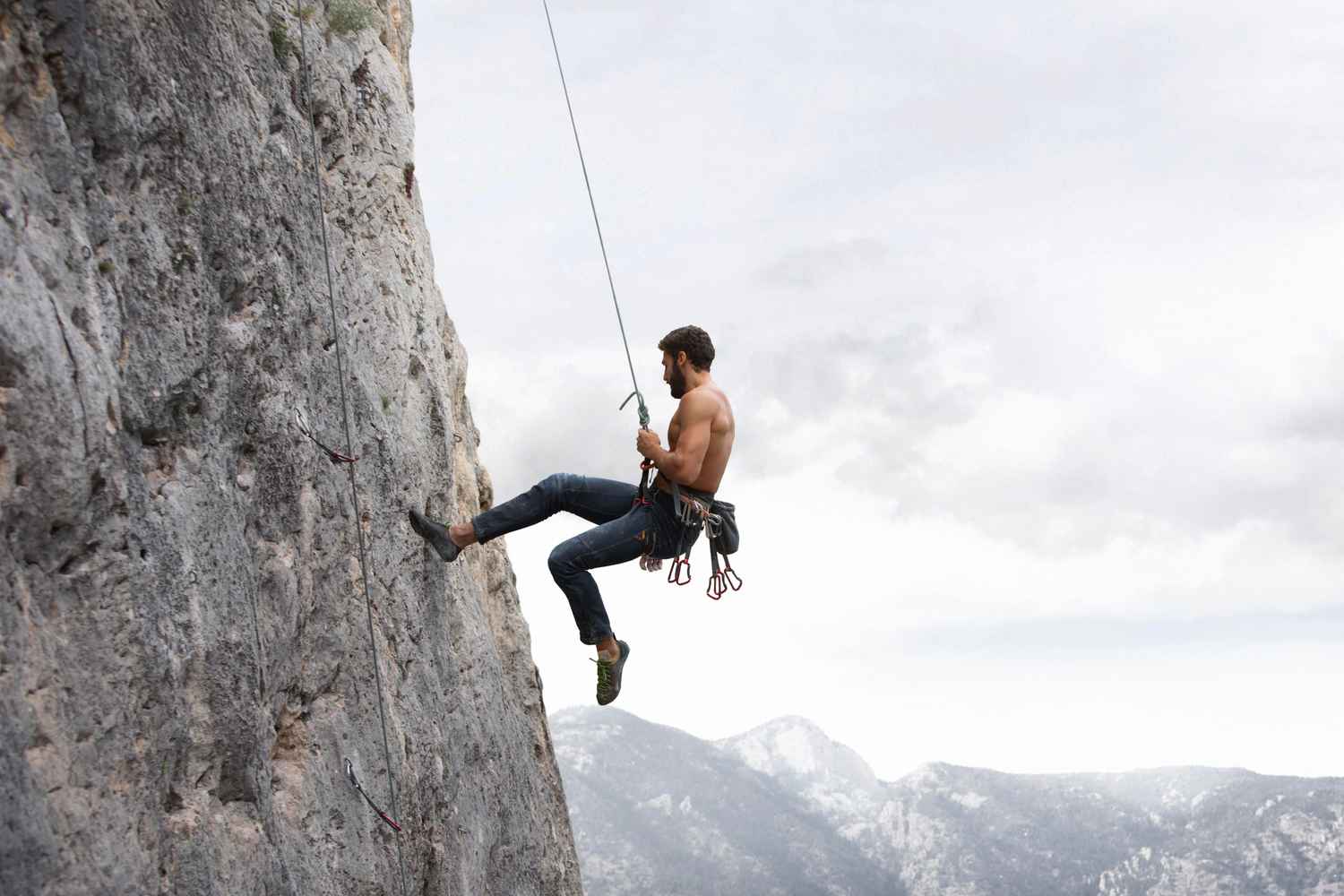

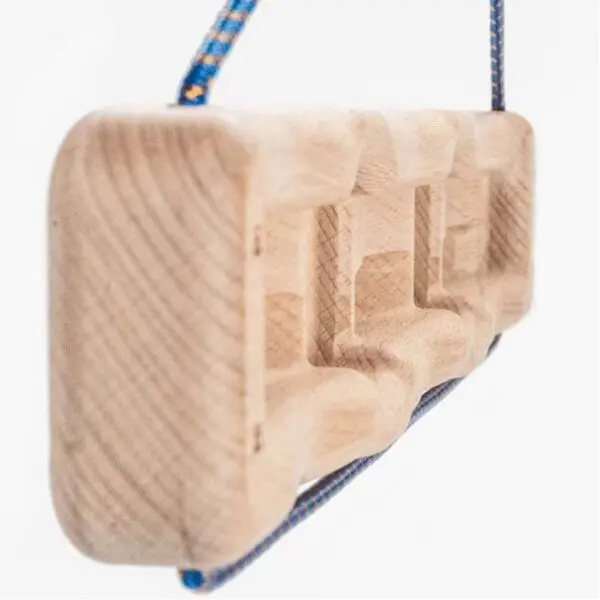
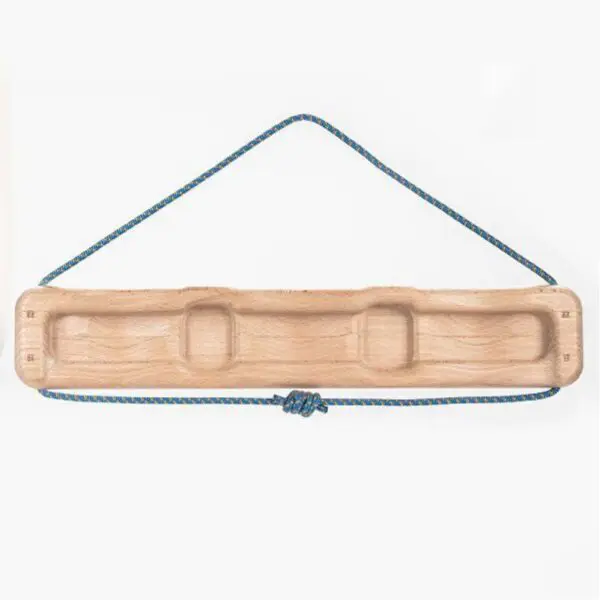


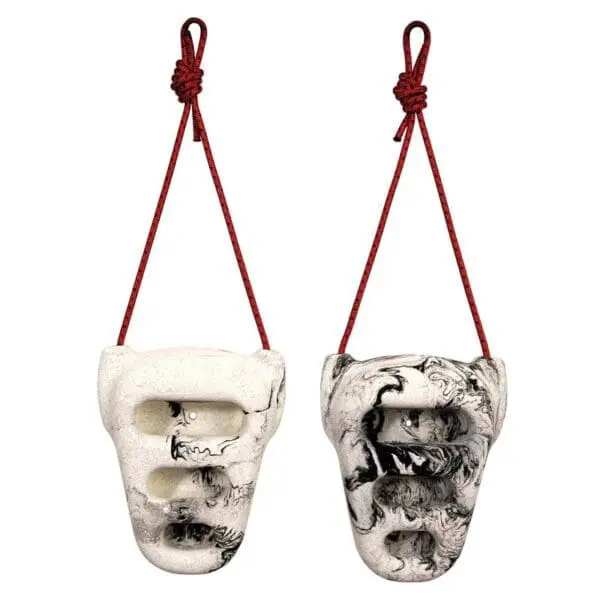
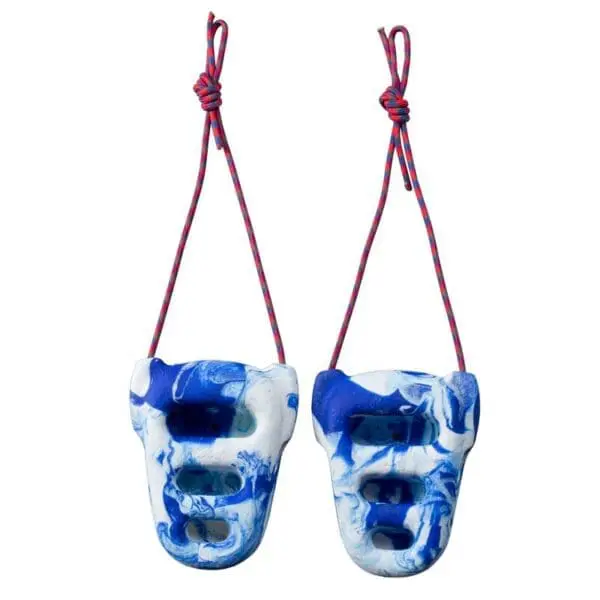


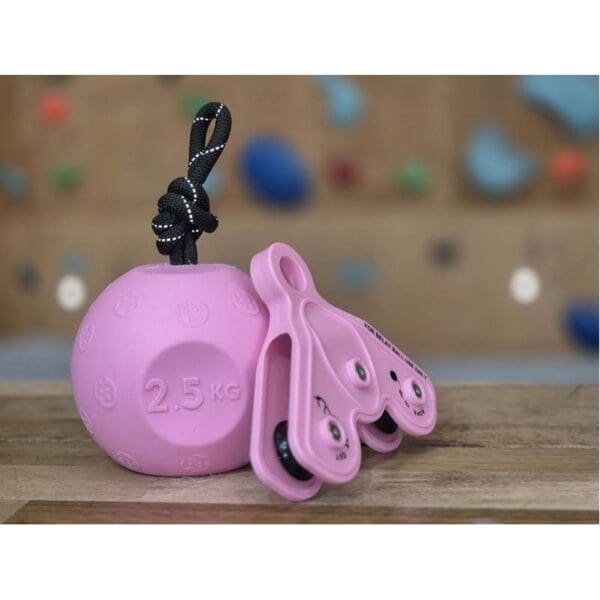
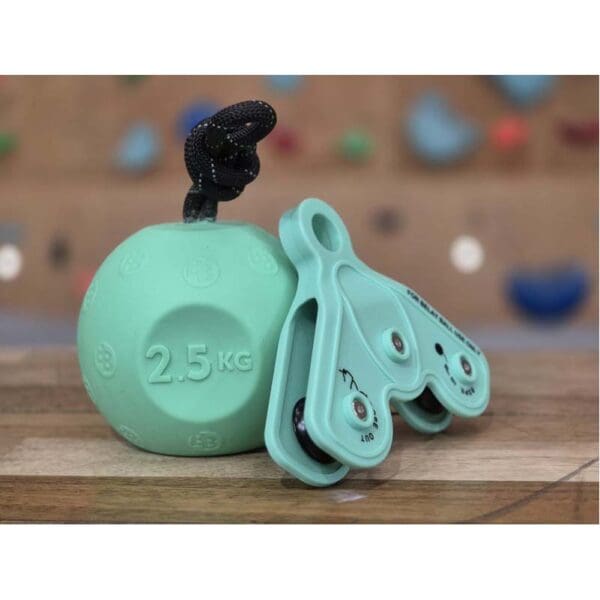



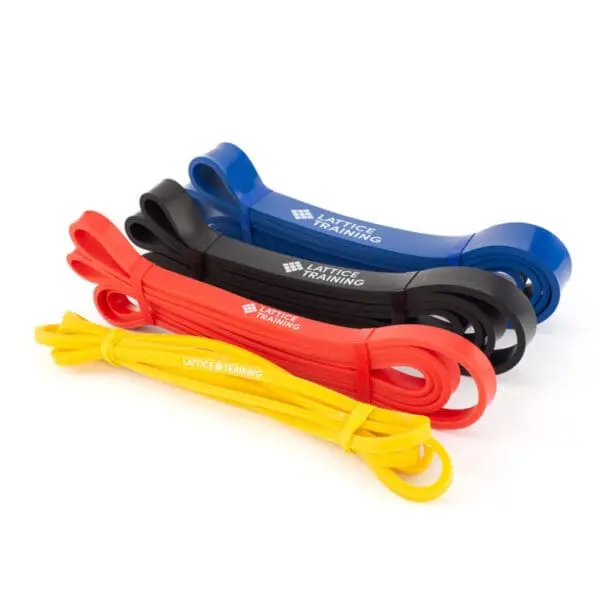












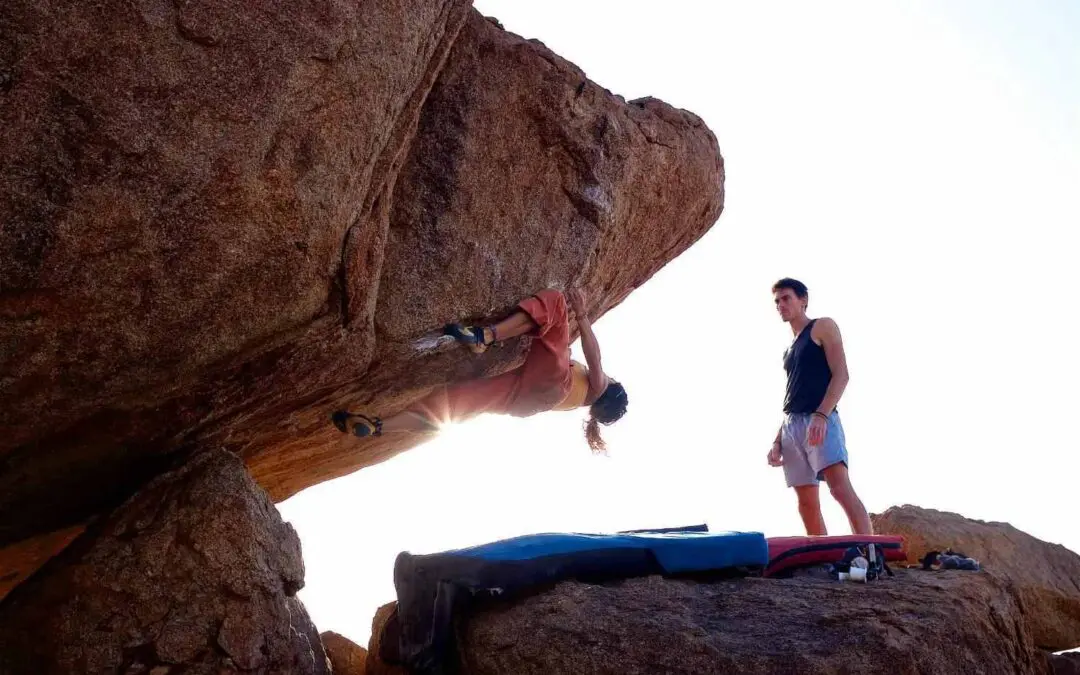

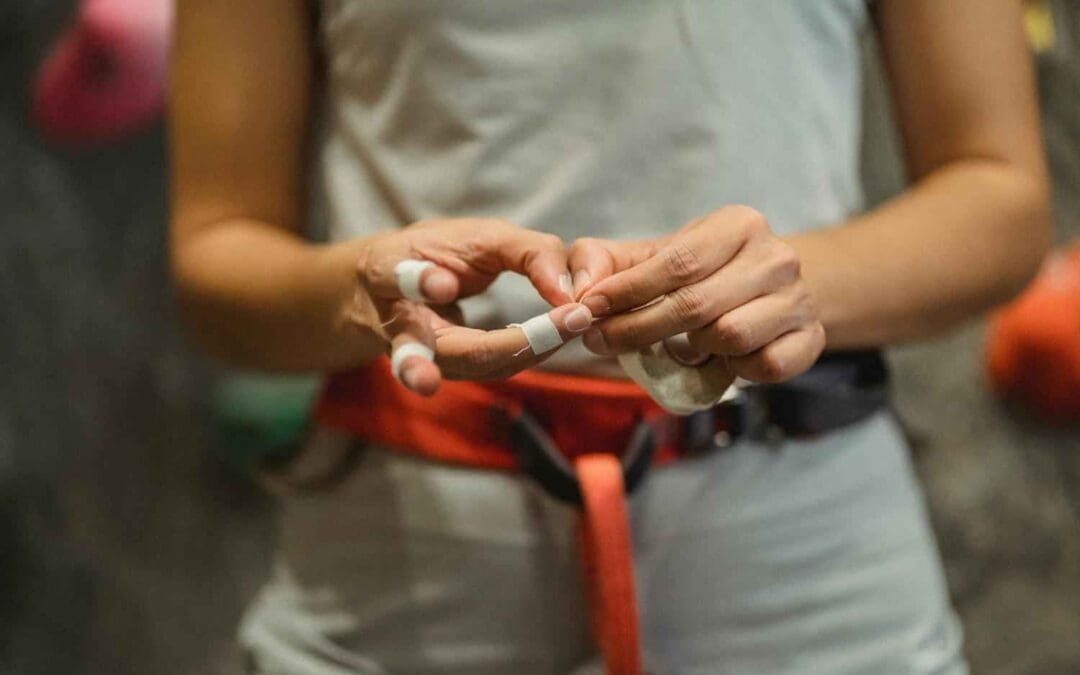
0 Comments